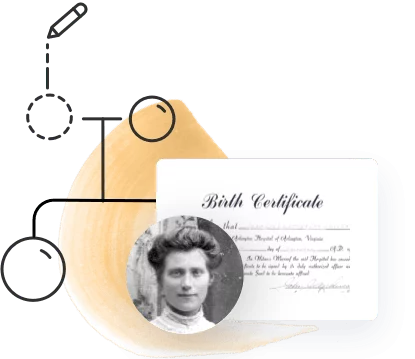
Genealogical projects are a great way to bring older adults and youth together. Genealogy does more than offer an additional topic of conversation or shared point of interest for grandparents, parents, children, and grandchildren. Sharing the challenge of unearthing your family roots together forces your family to work as a team — and this can strengthen family bonds and give you the chance to share a sense of joint accomplishment as you overcome roadblocks together. In fact, other than a tragic event, not much will bring your family closer or challenge your family in the same way as a genealogical project.
If you’re interested in genealogy, consider involving your children and/or grandchildren in the project. Together, you’ll be able to explore your family tree more deeply and get more done than you’d have been able to on your own. Here’s what you can do together:
Identify family photos
There are some tasks that you’ll be better equipped for, and some that your younger family members may be more adept at. Going through old family photos and identifying each person in the photo is an important task that only you will be able to do accurately.
Document dates of importance
This is another task that an older family member will need to start. It’s important to document all known important dates for the people in your family tree, including:
- Births
- Marriages
- Divorces
- Deaths
- Adoptions
- Immigration
- Change of addresses
- Religious events (i.e., baptisms)
- Legal transactions
- Job history including dates of retirement.
You won’t know all this information for each ancestor, but once you’ve created an initial list based on your own knowledge, your family can work together to fill in the holes. Documenting as many important dates as you can, will help you better understand the life story of each person in your family tree. Use the information that you do know to help guide your investigation and direct you where to look next for more information.
Internet advanced searches
When researching your family tree, you’ll inevitably get to a point where the basic Internet search options no longer yield results. Ask your children or grandchildren to help with advanced search options. You may find that your Internet-savvy family members can yield some surprising results with advanced search tricks.
Road trip
Explore local resources like libraries, county archives, historical societies, and even graveyards in and around your area and the known locations where your ancestors lived or visited. These family road trips can be fun and fruitful.
Family trip
Your genealogical research may take you beyond the borders of your city, county, state, or country. Consider the benefits of exploring your family history overseas with a family trip. The memories you make will last a lifetime, and the information you find could lead you down new roads of research and even to long-lost family members.
A long-term, team approach
When you’re working alongside your children or grandchildren, it’s important to keep each person’s interests, goals, motivations, and strengths in mind. Any genealogical project will be a long-term endeavor, so it’s important to keep each other motivated and interested in the project over time.
Also, keep in mind your children/grandchildren’s availability. School breaks and summer holidays are a good time to plan to work through some of the tasks on your to-do list. As younger family members begin jobs or move on to college, their availability may become limited. During these points, continue on your own and keep your team members up-to-date on your progress. These updates are great talking points and will help you remain close as time passes.
Ultimately, working together on your family history should be fun and bring your family closer together. When enjoying each other’s company and spending time together becomes your main priority, any information you find as a result of your genealogical inquiry will be an added bonus.




